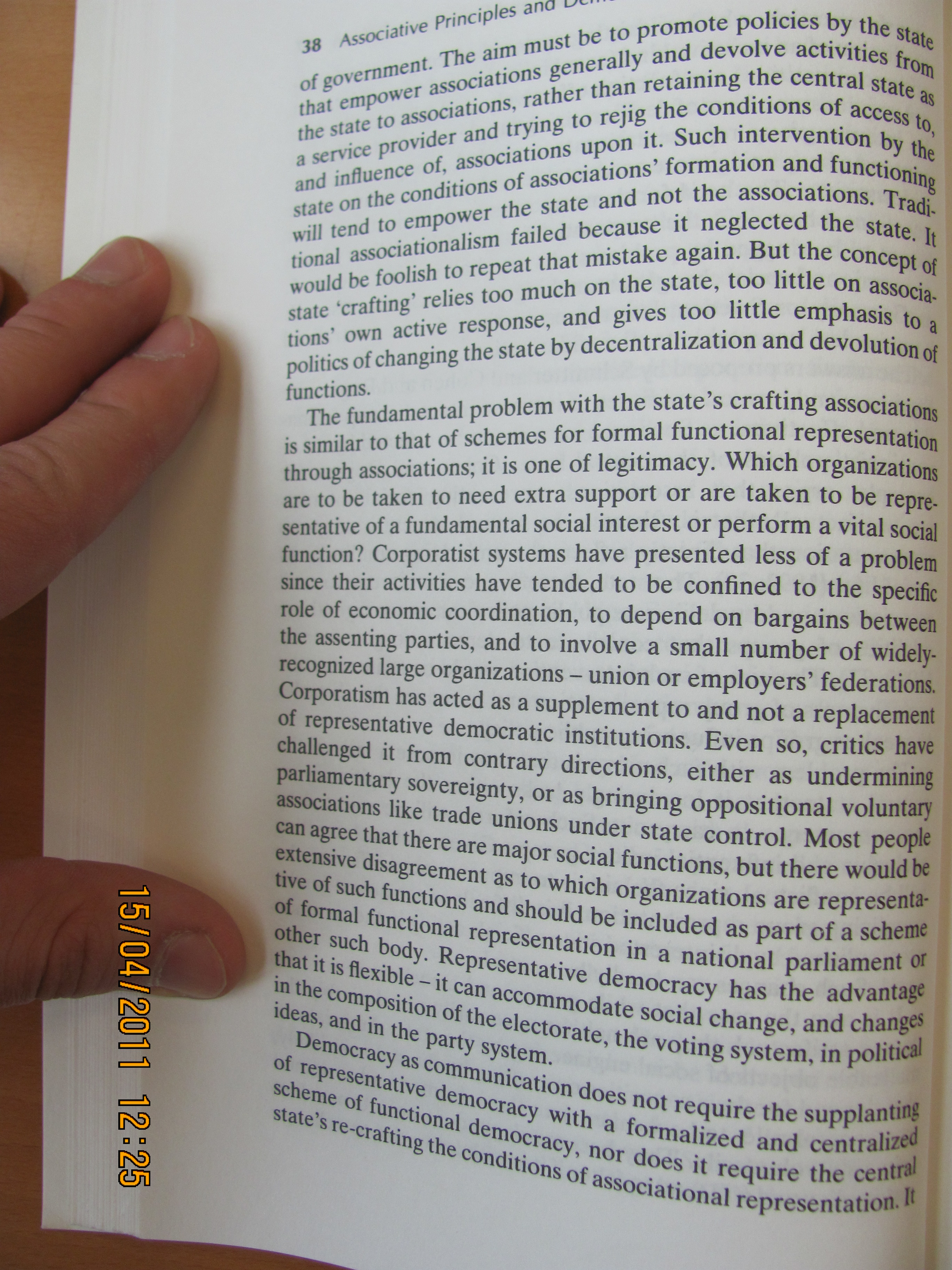IMG#26

38 Associative Principles ano _____
of govemment. The aim must be to promote policies by the state that empower associations generally and devolve activities from the state to associations, rather than retaining the central State as a service provider and trying to rejig the conditions of access to and influence of, associations upon it. Such intervention by the state on the conditions of associations’ formation and functioning will tend to empower the state and not the associations. Tradi. tional associationalism failed because it neglected the state. It would be foolish to repeat that mistake again. But the concept of state ‘crafting’ relies too much on the state, too little on associations’ own active response, and gives too little emphasis to a politics of changing the State by decentralization and devolutionof functions.
The fundamental problem with the state’s crafting associatiom is similar to that of schemes for formal functional representation through associations; it is one of legitimacy. Which organizatiom are to be taken to need extra support or are taken to be repre-sentative of a fundamental social interest or perform a vital social function? Corporatist systems have presented less of a problem sińce their activities have tended to be confined to the specific role of economic coordination, to depend on bargains between the assenting parties, and to involve a smali number of widely-recognized large organizations - union or employers’ federations. Corporatism has acted as a supplement to and not a replacement of representative democratic institutions. Even so, critics have challenged it from contrary directions, either as undermining parliamentary sovereignty, or as bringing oppositional voluntaiy associations like trade unions under state control. Most people can agree that there are major social functions, but there would be extensive disagreement as to which organizations are representa* tive of such functions and should be included as part of a scheme of formal functional representation in a national parliament or other such body. Representative democracy has the advantage that it is flexible - it can accommodate social change, and changes in the composition of the electorate, the voting system, in political ideas, and in the party system.
Democracy as communication does not require the supplanting of representative democracy with a formalized and centralized scheme of functional democracy, nor does it reąuire the central state’s re-crafting the conditions of associational representation. 1
Wyszukiwarka
Podobne podstrony:
IMG#10 22 Associative Principles and Democratic Reform public power and of the devolved associationa
IMG#20 32 Associative Principles and Democratic Reform Laski in ‘The Problem of Administrative Areas
83038 IMG#16 28 Associative Principles and Democratic Reform a pleni tude of power and the right to
IMG#16 28 Associative Principles and Democratic Reform a pleni tude of power and the right to exerci
40583 IMG#12 24 Associative Principles and Democratic Reform vision of a liberal-democratic State th
IMG#18 30 Associative Principles and Democratic Reform gain the upper hand and impose their view on
16826 IMG#30 42 Associative Principles and Democrau^. must be permissive and gradual, not prescripti
IMG#09 Associative Principles and Democratic Reform 21 We now tum to examine how associationalist an
IMG#08 20 Associative Principles and Democratic Reform yoluntary associations in order to do so. Ass
więcej podobnych podstron